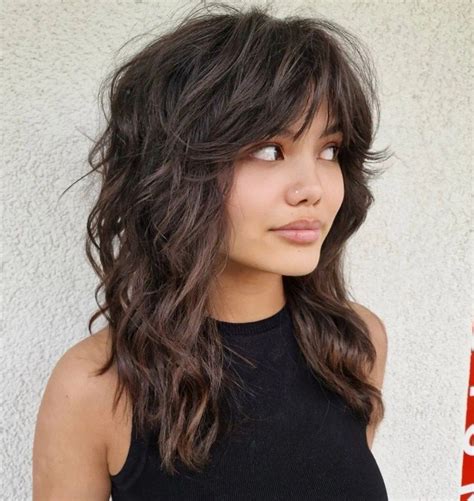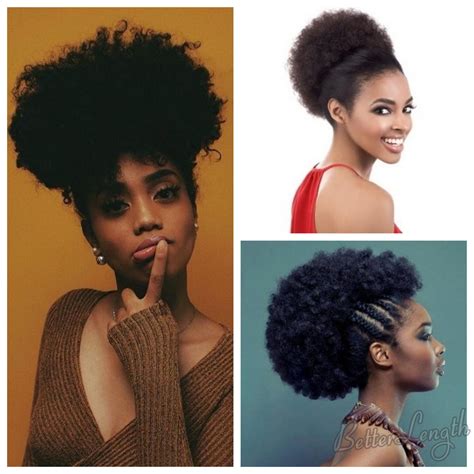Introduction

For generations, African women have embraced their natural hair textures, showcasing their unique beauty and cultural identity. The versatility of black hair allows for countless expressions of creativity, from elaborate braids to sleek ponytails. In this comprehensive guide, we delve into the captivating world of natural black African hairstyles, exploring their history, cultural significance, and the boundless styling possibilities that celebrate the essence of African heritage.
Historical Roots of Natural Black African Hairstyles
The rich tapestry of natural black African hairstyles has its origins in ancient African civilizations. Hair was adorned with intricate designs, braids, and jewelry, often serving as a symbol of status, identity, and spirituality.
- Ancient Egypt: Egyptian women were renowned for their elaborate hairstyles, as depicted in hieroglyphics and sculptures. They often wore wigs made from human hair or wool, adorned with beads, gold, and precious stones.
- Sub-Saharan Africa: In many African societies, hairstyles held cultural significance. They could indicate a person’s ethnic group, social status, marital status, or religious beliefs.
Cultural Significance of Natural Black African Hairstyles
Natural hairstyles not only enhance beauty but also carry deep cultural meanings:
- Expression of Identity: Hairstyles have always been a means of expressing personal identity and cultural heritage. They allow individuals to connect with their roots and embrace their unique heritage.
- Social Status and Hierarchy: In some cultures, hairstyles denoted an individual’s social standing or rank within the community. Elaborate hairstyles often indicated high status and wealth.
- Rituals and Ceremonies: Hairstyles played a significant role in various cultural rituals and ceremonies, such as weddings, funerals, and religious festivals.
Types and Styles of Natural Black African Hairstyles
The diversity of natural black African hair textures gives rise to a vast array of hairstyles, each with its distinct characteristics and techniques:
- Braids: Braiding is an ancient African art form that creates intricate patterns with hair. It can be done in various styles, including box braids, cornrows, and French braids.
- Locs: Locs, also known as dreadlocks, form when hair is left to mat and lock together naturally. They are often associated with spiritual beliefs and a connection to African ancestry.
- Twists: Twists are created by twisting two strands of hair around each other. They come in different sizes and can be styled in various updos or buns.
- Afros: Afros are a natural hairstyle that embraces the volume and texture of black hair. They can be styled in different shapes and sizes.
- Ponytails: Ponytails are a versatile hairstyle that can be worn high, low, or to the side. They can be adorned with hair accessories to add flair.
Benefits of Natural Black African Hairstyles
In addition to their cultural significance, natural black African hairstyles offer numerous benefits:
- Protective: Braids, locs, and twists protect hair from breakage and tangles. They are especially beneficial for those with long or natural hair.
- Low Maintenance: Many natural black African hairstyles require minimal styling time and upkeep. They can be left in for weeks or months without the need for frequent re-styling.
- Versatile: Natural hairstyles can be styled in countless ways, allowing individuals to express their creativity and adapt to different occasions.
Challenges and Motivations
Despite the beauty and benefits of natural black African hairstyles, some challenges and motivations drive their adoption and maintenance:
Challenges:
- Time-Consuming: Braiding, twisting, and locing can be time-consuming, especially for elaborate styles.
- Cost: Maintaining certain natural hairstyles can involve expenses for hair extensions, beads, and other accessories.
- Social Stigma: Some natural hairstyles, such as locs and afros, may face negative stereotypes or discrimination.
Motivations:
- Embrace Heritage: Natural hairstyles allow individuals to connect with their African roots and celebrate their cultural identity.
- Natural Beauty: Many women choose natural hairstyles to embrace their natural texture and beauty.
- Health: Natural hairstyles can promote hair health by minimizing breakage and damage.
Pros and Cons of Natural Black African Hairstyles
Pros:
- Protective for hair
- Low maintenance
- Versatile styling options
- Celebrates African heritage
- Promotes natural beauty
Cons:
- Can be time-consuming to style
- May involve expenses
- May face social stigma
Conclusion
Natural black African hairstyles are a testament to the rich cultural heritage and resilience of African women. They offer not only beauty but also protection, ease of maintenance, and a profound connection to one’s roots. Despite challenges, the motivations to embrace natural hairstyles remain strong, empowering individuals to celebrate their identity and embrace the captivating allure of their African heritage.
